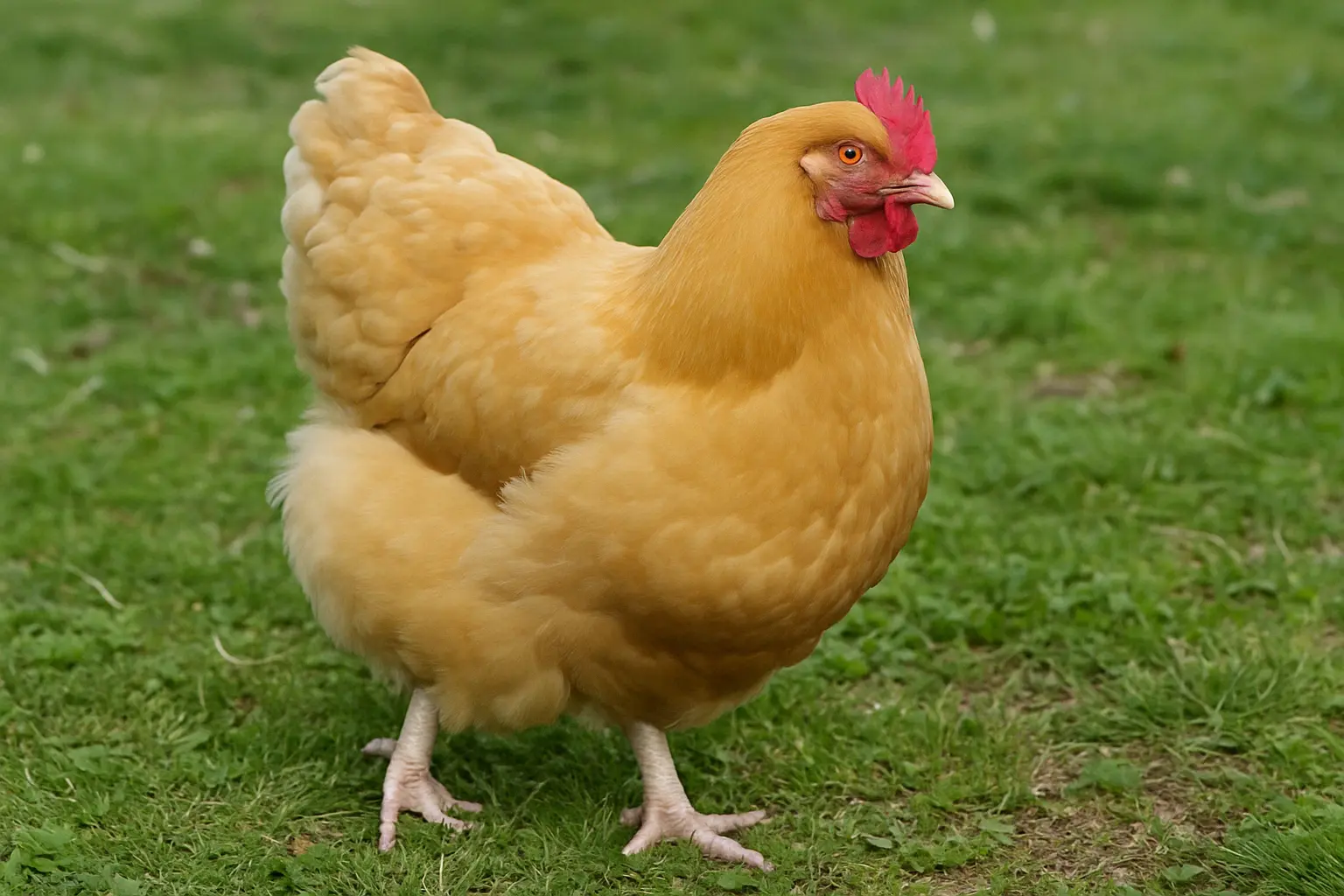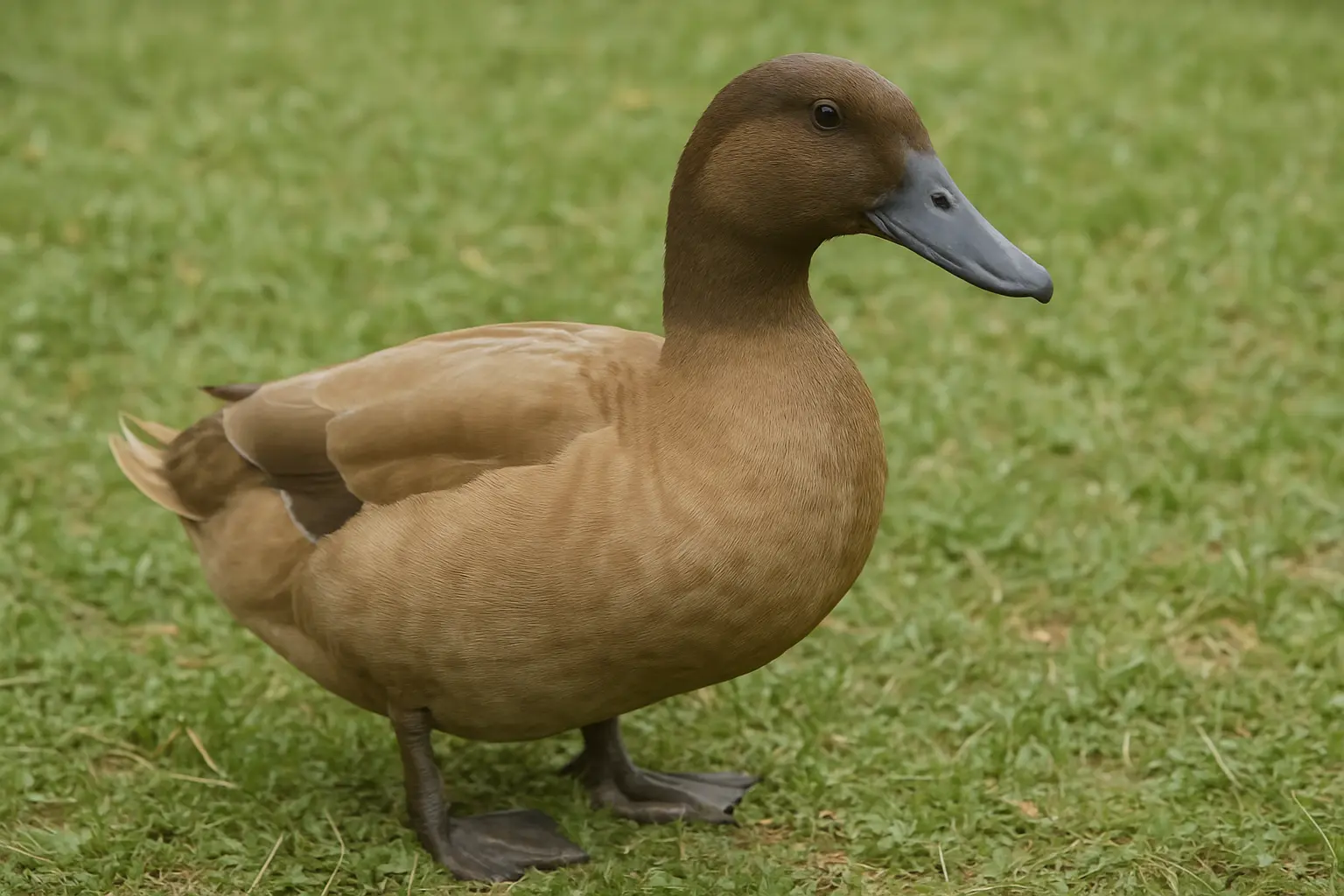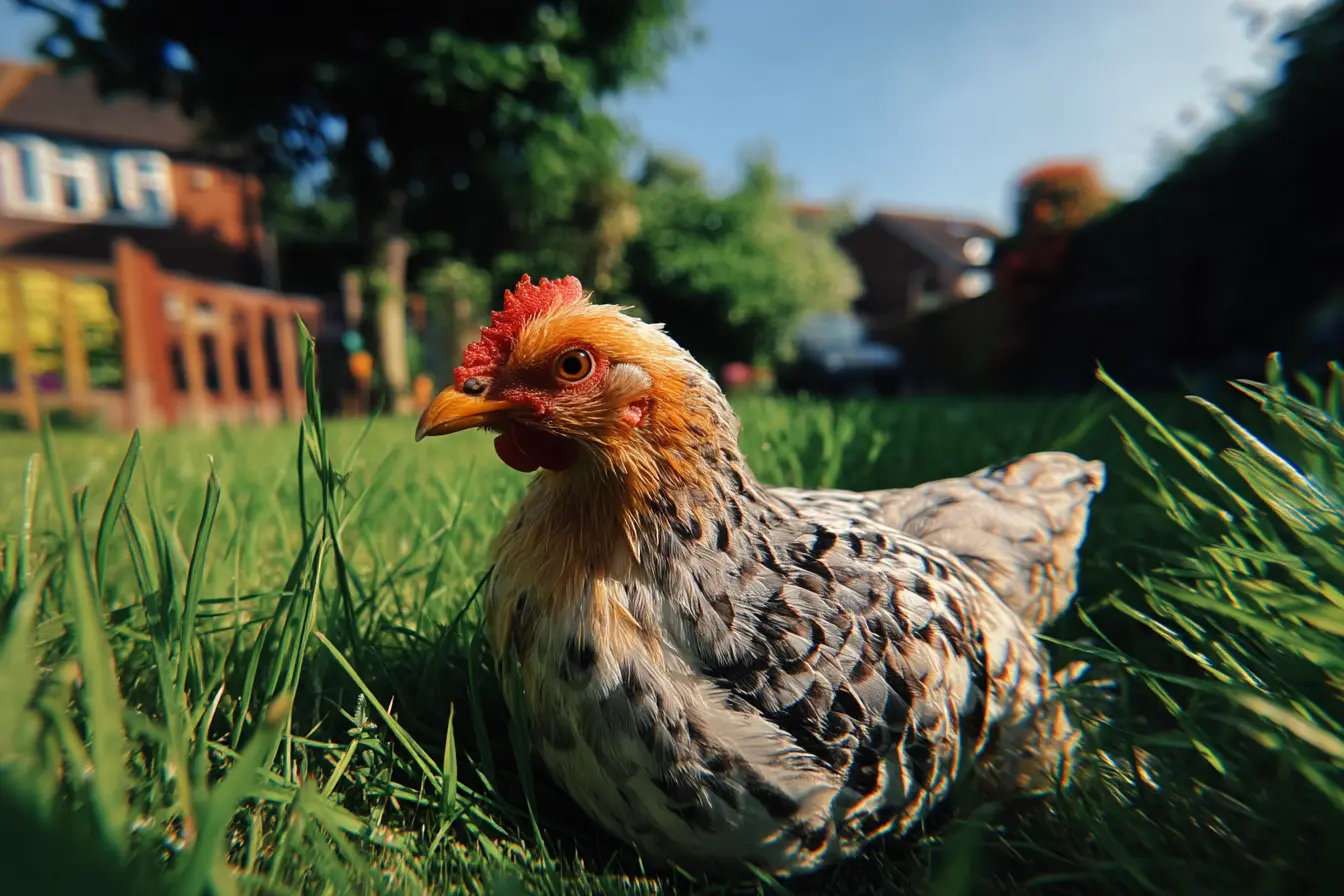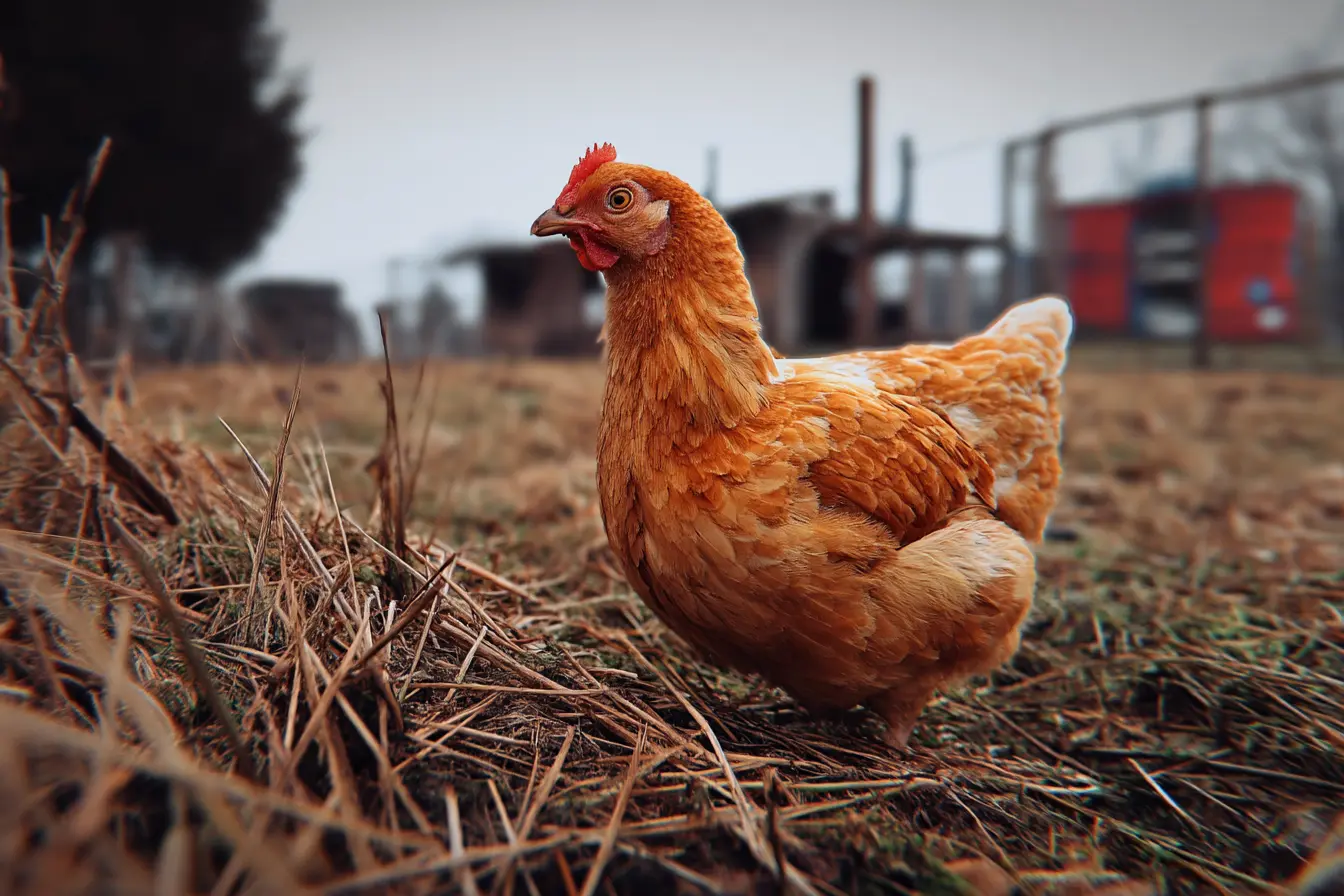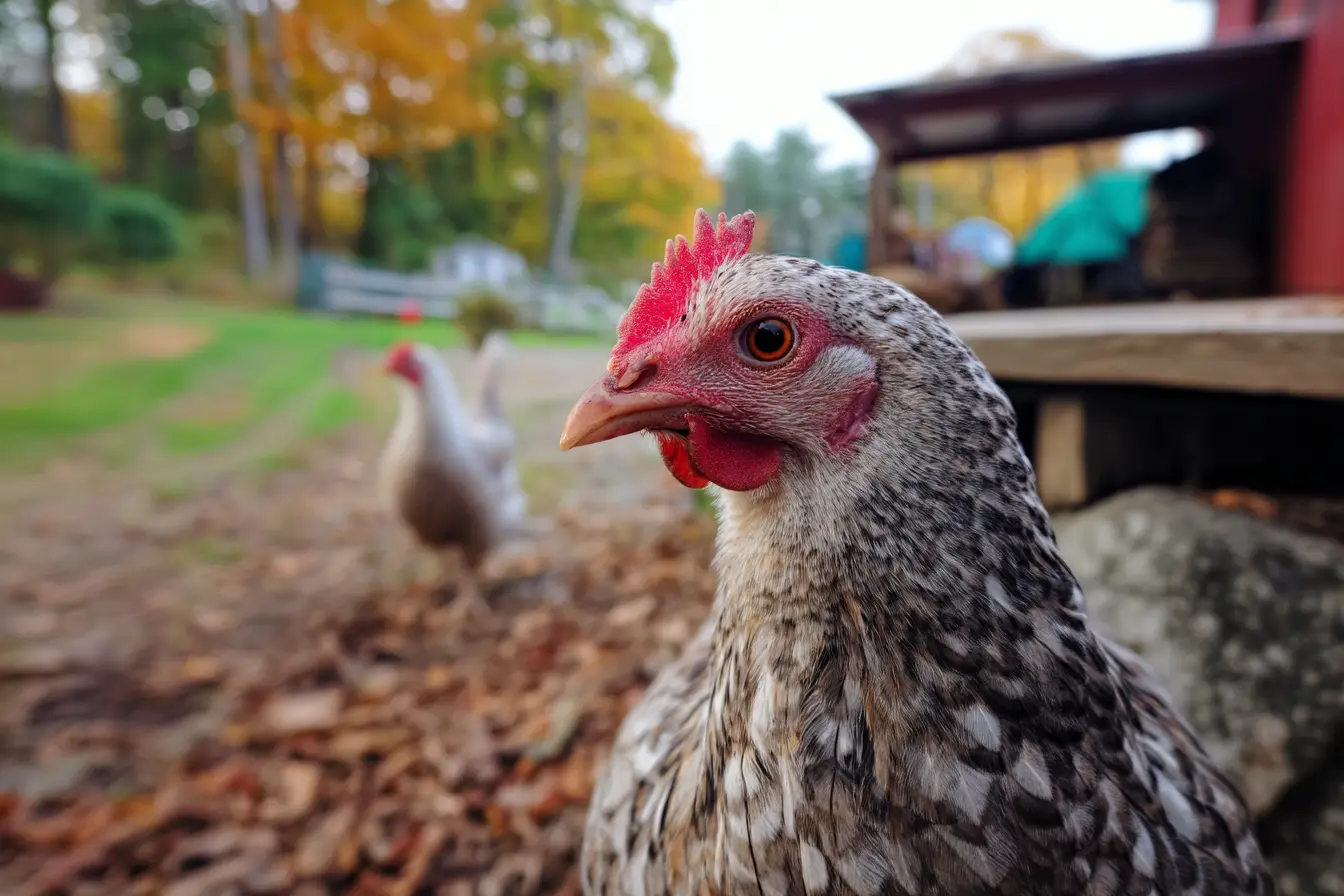
A Complete Guide to Keeping Plymouth Rock Chickens
Plymouth Rock chickens are a popular and versatile breed known for their friendly temperament, reliable egg production, and striking appearance. Whether you're new to poultry keeping or looking to expand your flock, Plymouth Rocks make an excellent choice for backyard chicken keepers in the UK.
This guide covers everything you need to know about caring for Plymouth Rock chickens, from their housing and diet to health care and egg production.
Introduction to Plymouth Rock Chickens
The Plymouth Rock breed originates from the United States and has been a favourite among poultry keepers for over a century. They are classified as a dual-purpose breed, meaning they are valued for both their egg-laying ability and their meat.
Plymouth Rocks are easy to care for, making them an ideal breed for beginners and experienced keepers alike.
Key Characteristics:
- Lifespan: 6-10 years with proper care
- Egg Production: 200-280 large brown eggs per year
- Temperament: Friendly, docile, and easy-going
- Size: Medium to large (hens weigh 3-3.5 kg, cockerels 3.5-4.5 kg)
- Colour Varieties: Barred (black and white stripes), white, buff, and more
- Hardiness: Excellent cold tolerance, well-suited to the UK climate
Why Choose Plymouth Rock Chickens?
There are many reasons why Plymouth Rocks are a great addition to your flock:
- Prolific Egg Layers: They provide a consistent supply of large brown eggs throughout the year.
- Friendly and Docile: Their calm nature makes them suitable for families and those new to chicken keeping.
- Cold-Hardy: They thrive in the UK's cool climate, handling winter weather well.
- Dual-Purpose Utility: They are excellent for both egg production and as table birds.
- Low Maintenance: They are easy to care for and adapt well to both confined spaces and free-ranging.
- Beautiful Appearance: The iconic barred plumage pattern is eye-catching and adds charm to any flock.
Housing Requirements
Providing a comfortable and safe environment is essential for the health and productivity of Plymouth Rock chickens.
Coop Requirements
- Size: Provide at least 0.4 square metres per bird inside the coop.
- Nesting Boxes: One nesting box per 3-4 hens, lined with soft bedding such as straw or wood shavings.
- Perches: Allow around 20-30 cm of perching space per bird, ensuring they have room to roost comfortably.
- Ventilation: Ensure good airflow to prevent respiratory issues, while keeping the coop draught-free.
Run and Free-Range Space
Plymouth Rocks are active birds that enjoy foraging and exploring their surroundings.
- Minimum Run Space: 1 square metre per bird.
- Free-Range Benefits: They love to forage for insects and greens, which helps supplement their diet.
- Predator Protection: Install secure fencing to protect them from foxes and other predators.
Tip: Providing enrichment such as perches, dust baths, and sheltered areas will help keep them happy and healthy.
Feeding Your Plymouth Rock Chickens
A well-balanced diet is crucial for maintaining their health and consistent egg production.
Essential Nutrition
- Layers Pellets (16-18% protein): These should form the basis of their diet for optimal laying.
- Grit: Helps with digestion by grinding down food in their gizzard.
- Greens and Treats: Offer leafy greens, vegetables, and occasional treats such as mealworms.
- Fresh Water: Ensure they have constant access to clean, fresh water.
Feeding Tip: Limit high-calorie treats to prevent obesity, as Plymouth Rocks can gain weight easily if overfed.
Health and Common Concerns
Plymouth Rocks are generally robust and hardy birds, but like all poultry, they require regular health checks to prevent issues.
Common Health Issues
- Parasites (mites and lice): Regularly inspect their feathers and treat with poultry-safe powders if needed.
- Scaly Leg Mites: Check their legs for signs of raised scales and treat promptly.
- Obesity: Due to their tendency to overeat, monitor their weight and provide plenty of opportunities for exercise.
- Respiratory Issues: Ensure the coop is well-ventilated to prevent infections caused by dampness and ammonia build-up.
Preventative Care: Conduct routine health checks, maintain a clean coop, and provide a nutritious diet to keep them in top condition.
Plymouth Rock Chicken Behaviour and Handling
One of the most appealing qualities of Plymouth Rock chickens is their gentle and friendly nature.
- They enjoy human interaction and can become very tame with regular handling.
- They are calm and unlikely to be aggressive, making them excellent for families with children.
- Plymouth Rocks integrate well with other breeds and tend to be middle to low in the pecking order.
Handling Tip: Start handling your chickens from a young age to build trust and ensure they remain friendly.
Egg Production and Collection
Plymouth Rock hens are known for their steady and reliable egg production.
Egg-Laying Habits
- They typically begin laying at around 20-24 weeks of age.
- Expect around 4-5 eggs per week, depending on diet and environment.
- They are consistent layers even during the colder months, especially with supplemental lighting.
Egg Collection Tip: Collect eggs daily to ensure cleanliness and prevent hens from becoming broody.
Winter Care for Plymouth Rock Chickens
Plymouth Rocks are well-adapted to colder weather, but a few extra precautions will ensure their comfort during the UK winter months.
- Insulated Coop: Provide adequate bedding such as straw to keep them warm.
- Frozen Water Prevention: Check drinkers regularly or use heated drinkers if possible.
- Frostbite Prevention: Their combs can be prone to frostbite, so applying petroleum jelly can help.
- Extra Feeding: Increase their calorie intake slightly to help them maintain body heat.
Winter Tip: Ensure their run remains dry and free from mud to prevent foot problems.
Breeding and Raising Plymouth Rock Chicks
Plymouth Rock hens can go broody occasionally and make excellent mothers if you wish to hatch your own chicks.
Breeding Tips
- Provide a quiet, comfortable nesting area for broody hens.
- Use an incubator if hens are not broody, maintaining a temperature of 37.5°C.
- Chicks require warmth and access to chick starter feed for the first few weeks.
Growth Rate: Plymouth Rock chicks grow relatively quickly and will feather out within a few weeks.
Legal Considerations in the UK
Before getting Plymouth Rock chickens, ensure you comply with local regulations and poultry-keeping guidelines.
- DEFRA Guidelines: Stay informed about biosecurity measures, especially during avian flu outbreaks.
- Local Council Rules: Some councils have restrictions on flock size and noise levels.
- Neighbour Considerations: Be mindful of potential noise and cleanliness concerns to avoid disputes.
Conclusion
Plymouth Rock chickens are an excellent choice for UK poultry keepers, offering a perfect combination of productivity, hardiness, and friendly temperament. Whether you're looking for a reliable egg layer, a docile pet, or a dual-purpose bird, Plymouth Rocks are a fantastic addition to any flock.
With the right care, housing, and nutrition, Plymouth Rock chickens will provide you with years of companionship and a steady supply of delicious eggs.
Contents
- Introduction to Plymouth Rock Chickens
- Why Choose Plymouth Rock Chickens?
- Housing Requirements
- Feeding Your Plymouth Rock Chickens
- Health and Common Concerns
- Plymouth Rock Chicken Behaviour and Handling
- Egg Production and Collection
- Winter Care for Plymouth Rock Chickens
- Breeding and Raising Plymouth Rock Chicks
- Legal Considerations in the UK
- Conclusion
Tags
Vets near you
Speciality vets
- Aquatics vet specialists
- Birds vet specialists
- Camelids vet specialists
- Cats vet specialists
- Cattle vet specialists
- Deer vet specialists
- Dogs vet specialists
- Equines vet specialists
- Exotic vet specialists
- Goats vet specialists
- Pigs vet specialists
- Poultry vet specialists
- Sheep vet specialists
- Small Mammals vet specialists
- Wild vet specialists
Vet facilities
- Accessible by public transport
- Blood testing
- Car park nearby
- Client car park
- Dentistry
- Diagnostic imaging
- Disabled public access
- Flea and worm treatments
- Microchipping
- Mobile services
- Neutering
- Open at weekends
- Out-of-hours service
- Referral interests
- Referrals only
- Street parking outside
- Toilets available
- Vaccination clinic
